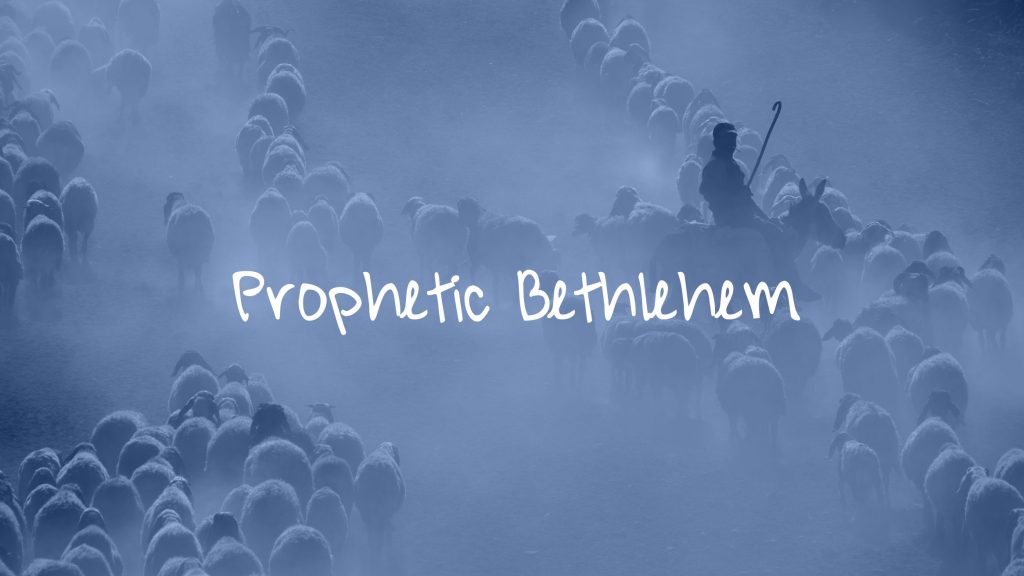But you, O Bethlehem Ephrathah, who are too little to be among the clans of Judah, from you shall come forth for me one who is to be ruler in Israel, whose coming forth is from of old, from ancient days (Micah 5:2, ESV).
Small details yield significance and proof that the Bible is historical, reliable, and true.
If someone asks us where Jesus was born, and we answer, “Bethlehem,” we would be half-right but also half-wrong. Jesus was born in the village of Bethlehem Ephrathah. During the time of the birth of Jesus, there was a small village of shepherds named Bethlehem Ephrathah and a city called Bethlehem where the rich from Jerusalem lived.
Guess which one is the location of the birth of Jesus? Amen, you are right – the one with the name “Ephrathah” in the designation!
I am the good shepherd. The good shepherd lays down his life for the sheep (John 10:11).
Bethlehem means “bread,” and Ephrathah means “fruit.” It was a village that provided sheep and other items for temple sacrifices in Jerusalem. Bethlehem Ephrathah also sat upon a natural aquifer that provided the water for temple cleansings.
The Bible always intertwines prophecy with actual places and events.
Bethlehem Ephrathah provided sacrificial lambs for temple sacrifices and was the birthplace of “the” sacrificial Lamb.
The next day, again, John was standing with two of his disciples, and he looked at Jesus as he walked by and said, “Behold, the Lamb of God!” (John 1:35-36)
When John the Baptist saw Jesus and said, “Behold, the Lamb of God,” this statement had local historical significance for those who heard it.
Jesus described himself as the Bread of Life. Again, the image of Bethlehem as “bread” …
I am the bread of life; whoever comes to me shall not hunger, and whoever believes in me shall never thirst (John 6:35).
Did you catch it?
All of us know Jesus as the Bread of Life, but notice what the rest of the statement says: “Whoever believes in me shall never thirst again.” Yes, “bread” and “thirst” are in the same sentence.
At dinner, we eat bread and then get thirsty. Jesus is the Bread of Life, and in Him, we will never thirst again.
All are inferred from the birthplace of Jesus, Bethlehem Ephrathah – a village located upon wells of water that still flow freely today!
Scripture continues this self-authenticating by mixing more facts to illumine meaning and substantiate inspiration. Bethlehem sat on water. It was a place of sheep and shepherds. The village of “Ephrathah” or “fruit” had vineyards and grain fields.
All used in the imagery of the teachings of Jesus …
I am the true vine, and my Father is the vinedresser (John 15:1).
Then he said to his disciples, “The harvest is plentiful, but the laborers are few; therefore pray earnestly to the Lord of the harvest to send out laborers into his harvest” (Matthew 9:37-38)
I’ve written about just two words and one location in this Interruption.
Scripture is deep.
We discover, each time we read the Bible, a fact or truth that helps us believe, gives us encouragement for holiness, and inspires our faith. We know that despite all the seeming inconsistencies of this life – that a God who inspires such a complex but practical and coherent Word …
Perhaps does have everything under control!
Let’s have faith. Bethlehem Ephrathah!
Note from Pastor Grant: In preparation for Christmas, I’m writing several Interruptions entitled “Prophetic.” I’m explaining why many of the events of Jesus’ birth are prophetic, having been predicted in scripture hundreds of years before His birth.

